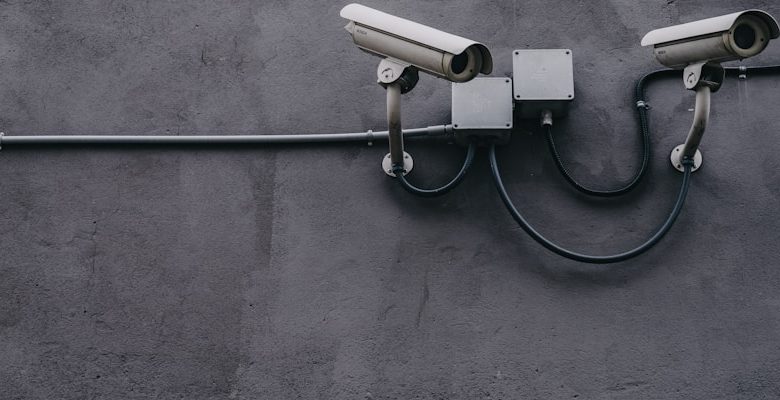What Are Custodial Wallets, and How Do They Affect Security?

- Understanding the Basics of Custodial Wallets
- Exploring the Relationship Between Custodial Wallets and Security
- Comparing Custodial Wallets to Non-Custodial Wallets
- The Risks and Benefits of Using Custodial Wallets
- Tips for Safely Managing Funds in Custodial Wallets
- The Future of Custodial Wallets in the Realm of Security
Understanding the Basics of Custodial Wallets
When it comes to custodial wallets, it is important to understand the basics in order to make informed decisions about your security. A custodial wallet is a type of wallet where a third party, such as an exchange or wallet provider, holds and manages your private keys on your behalf. This means that you do not have full control over your funds, as the custodian has the ability to access and manage them.
While custodial wallets can offer convenience and user-friendly features, they also come with security risks. Since the custodian holds your private keys, if their security measures are compromised, your funds could be at risk. It is essential to choose a reputable custodian with strong security protocols in place to minimize this risk.
It is important to note that custodial wallets are not the only option available. Non-custodial wallets, also known as self-custody wallets, give you full control over your private keys and funds. While they may require more technical know-how to use, they offer a higher level of security and privacy compared to custodial wallets.
Exploring the Relationship Between Custodial Wallets and Security
When examining the relationship between custodial wallets and security, it is crucial to consider the impact these wallets have on the overall safety of your digital assets. Custodial wallets, also known as hosted wallets, are wallets where a third party holds the private keys on behalf of the wallet owner. While this may provide convenience for users who are not familiar with managing their own keys, it also introduces potential security risks.
One of the main concerns with custodial wallets is the fact that users are essentially placing their trust in the third party to securely store their private keys. This means that if the custodial wallet provider experiences a security breach or is compromised in any way, the user’s funds could be at risk. Additionally, custodial wallets are often targeted by hackers due to the large amount of funds they hold, making them a prime target for cyber attacks.
On the other hand, non-custodial wallets, where users have full control over their private keys, are generally considered to be more secure. By managing their own keys, users can reduce the risk of their funds being stolen or compromised. However, non-custodial wallets also come with their own set of challenges, such as the responsibility of securely storing and backing up their private keys.
Ultimately, the decision between using a custodial or non-custodial wallet comes down to personal preference and risk tolerance. While custodial wallets may offer convenience, they also pose security risks that users should be aware of. It is important for individuals to weigh the pros and cons of each type of wallet and choose the option that best aligns with their security needs and preferences.
Comparing Custodial Wallets to Non-Custodial Wallets
When comparing custodial wallets to non-custodial wallets, there are several key differences to consider. Custodial wallets are wallets where a third party holds and manages the user’s private keys on their behalf. This means that users do not have full control over their funds and must rely on the custodian to secure their assets. On the other hand, non-custodial wallets give users full control over their private keys, allowing them to manage their funds independently.
One of the main advantages of custodial wallets is that they often provide an easy-to-use interface and additional security features, such as insurance against hacks or theft. However, this convenience comes at a cost – users must trust the custodian to safeguard their funds. Non-custodial wallets, on the other hand, offer greater security and privacy since users are in full control of their private keys. This reduces the risk of hacks or theft since there is no central point of failure.
Another important factor to consider when comparing custodial and non-custodial wallets is the level of decentralization. Custodial wallets rely on centralized entities to manage users’ funds, which can be susceptible to regulatory actions or hacking attempts. Non-custodial wallets, on the other hand, operate on decentralized networks, making them more resilient to censorship and external interference.
The Risks and Benefits of Using Custodial Wallets
When considering using custodial wallets, it is important to weigh the risks and benefits associated with this type of wallet. One of the main benefits of custodial wallets is the convenience they offer. By entrusting your funds to a third party, you can easily access your cryptocurrencies from any device with an internet connection. This can be especially helpful for those who are new to the world of cryptocurrency and may find managing their own private keys daunting.
However, there are also significant risks to using custodial wallets that should not be overlooked. One of the biggest concerns is security. When you store your funds in a custodial wallet, you are essentially putting your trust in the security measures of the wallet provider. If the provider’s security is compromised, your funds could be at risk of theft. Additionally, if the provider goes out of business, you may lose access to your funds altogether.
Another risk to consider is the lack of control you have over your own funds when using a custodial wallet. Since you are relying on a third party to manage your cryptocurrencies, you may not have the same level of autonomy as you would with a non-custodial wallet. This means that you may be subject to the policies and procedures of the wallet provider, which could impact your ability to access or use your funds as you see fit.
Tips for Safely Managing Funds in Custodial Wallets
When it comes to safely managing funds in custodial wallets, there are a few tips to keep in mind. First and foremost, it is crucial to choose a reputable custodial wallet provider with a strong track record of security. This will help ensure that your funds are safe and protected from potential threats.
Additionally, it is important to use two-factor authentication whenever possible to add an extra layer of security to your account. This will help prevent unauthorized access to your funds even if your password is compromised.
Another important tip is to regularly monitor your account for any suspicious activity. If you notice any unauthorized transactions or changes to your account, it is crucial to report them immediately to your custodial wallet provider.
Furthermore, it is recommended to only keep a small amount of funds in your custodial wallet for everyday use, while storing the majority of your funds in a secure offline wallet. This will help minimize the risk of losing a large amount of funds in case of a security breach.
Lastly, it is essential to stay informed about the latest security threats and best practices for managing funds in custodial wallets. By staying vigilant and proactive, you can help ensure that your funds remain safe and secure at all times.
The Future of Custodial Wallets in the Realm of Security
The future of custodial wallets in the realm of security is a topic of great interest and concern for many in the cryptocurrency community. As technology continues to evolve, so too do the methods by which hackers and malicious actors attempt to gain access to sensitive information and funds.
Custodial wallets, which are wallets that are managed by a third party, offer a level of convenience and ease of use that is attractive to many users. However, they also present a number of security risks that must be carefully considered.
One of the key issues with custodial wallets is the fact that users are essentially placing their trust in the hands of a third party. While many custodial wallet providers take security very seriously and implement a range of measures to protect user funds, there is always the risk that a security breach could occur.
In recent years, there have been a number of high-profile hacks and security breaches involving custodial wallets, which has raised concerns about the overall security of these types of wallets. As a result, many users are now looking for alternative solutions that offer greater security and control over their funds.
In conclusion, while custodial wallets offer a level of convenience that is appealing to many users, it is important to carefully consider the security implications before choosing to use one. As technology continues to evolve, it is likely that new solutions will emerge that offer a better balance between security and convenience.



